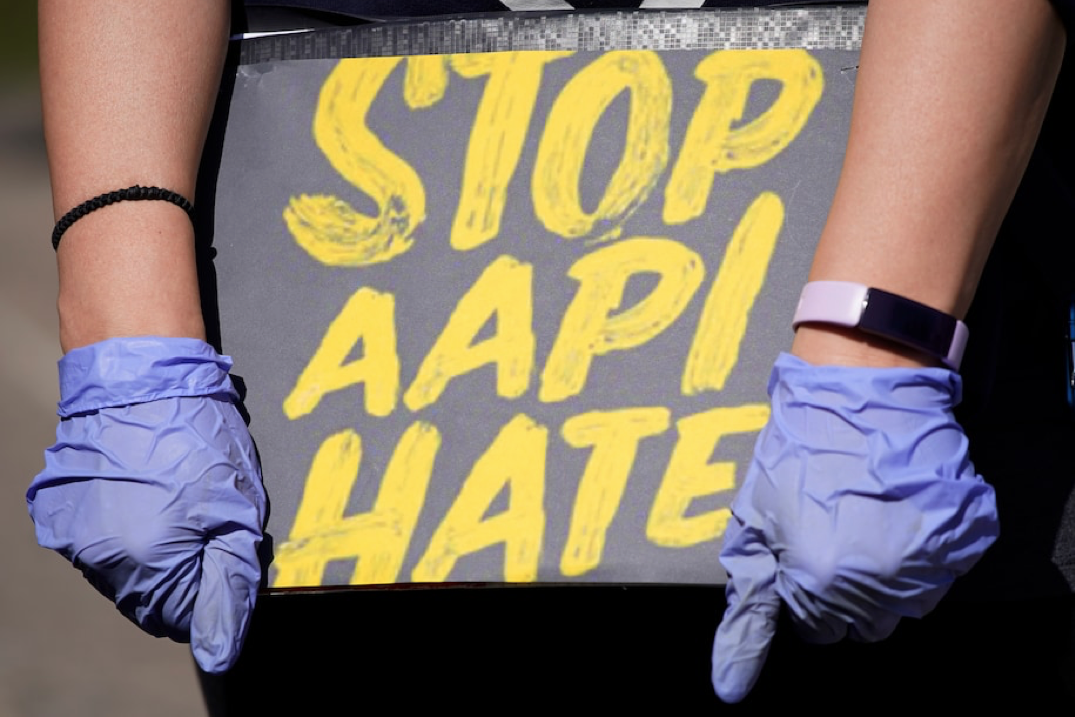The Washington Post: Opinion
Opinion: How to investigate the lab-leak theory without inflaming anti-Asian hate
A woman holds a sign supporting an end to hate directed at Asian Americans and Pacific Islanders (AAPI), as seen at the Logan Square Monument in Chicago on March 20. (Nam Y. Huh/AP)
By Leana S. Wen
June 1, 2021 at 4:05 p.m. EDT


